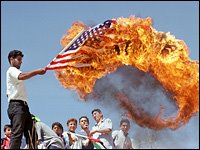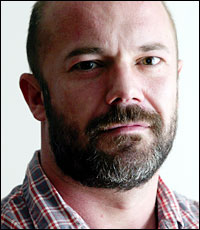 NPR's All Things Considered has started a five-part series on the language of the "war on terror," with this piece on jihad, "The War on the Word 'Jihad'" (10/31/2006 - 7:31). Future episodes will be devoted to "Islamofascists," "imperialism." "democracy," and "war on terrorism." As NPR states, this is such an important series since all these terms have a practical effect on our foreign policy and how we interact with with the Muslim world.
NPR's All Things Considered has started a five-part series on the language of the "war on terror," with this piece on jihad, "The War on the Word 'Jihad'" (10/31/2006 - 7:31). Future episodes will be devoted to "Islamofascists," "imperialism." "democracy," and "war on terrorism." As NPR states, this is such an important series since all these terms have a practical effect on our foreign policy and how we interact with with the Muslim world.Musings
- Like many terms, "Jihad" has multiple meanings; perhaps even more important is the connotation the term has--whether "jihad" is inherently or primarily a negative term in the Muslim world. Check the entry at Wikipedia.
- One suggestion is the use of hirabis (originally meaning "brigands") as a more pejorative terms for jihadists. What are some English synonyms for "jihadists"? Are all the English terms equally negative?













